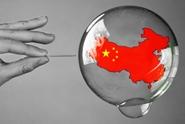Government/Policy

December 10, 2016
EU To Investigate Corrosion Resistant Steels from China
Written by Sandy Williams
The European Commission will begin a new antidumping investigation of Chinese steel imports after finding that a complaint by steel association Eurofer merits inquiry.
Eurofer alleged in a complaint on Oct. 24, 2016 that imports of certain corrosion resistant steels from China are being dumped and causing material injury to the EU steel industry. The investigation will cover the period from October 2015 to September 30, 2016 and conclude within 15 months.
The investigation was announced days before the anniversary date of China’s admittance to the World Trade Organization.
The fifteen anniversary of its admittance to the WTO is on Sunday, Dec. 11. When China joined the WTO it was with the understanding that it would remain a non-market economy for fifteen years and gain market status upon completion of the period. China says that as of Dec. 11 new trade rules should prevent its import pricing being compared to market economies like Canada and should be regarded as fair market value.
The United States, European Union and Japan, however, have announced they will not treat China as a market economy under WTO standards.
“The U.S. is not changing China’s status as a non-market-economy,” said a senior U.S. administration official. “China’s protocol of accession to the WTO doesn’t require the U.S. or any other WTO member to automatically grant China market-economy status after December 11 2016.”
A nonmarket economy under US law is defined as a country that “does not operate on market principles of costs or pricing structures, so that the sales of merchandise in such a country do not reflect the fair value of the merchandise.”
China has been faced with antidumping and subsidy trade cases on a multitude of products. In the first eleven months of 2016, sixteen countries brought a total of 41 investigations on steel products imported from China, a 24 percent increase from the prior year.
In October of this year, the EU imposed provisional tariffs on steel imports of heavy steel plate and hot rolled steel from China, at rates of up to 73.7 percent for plate and 22.6 percent for hot rolled. The investigations will conclude in April.
Shen Danyang, a spokesperson of the Ministry of Commerce, said during a press conference on Friday that too many countries are resorting to protectionism and blaming China for their economic woes.
“The world should work together to face the problem, rather than just targeting China,” said Shen.







